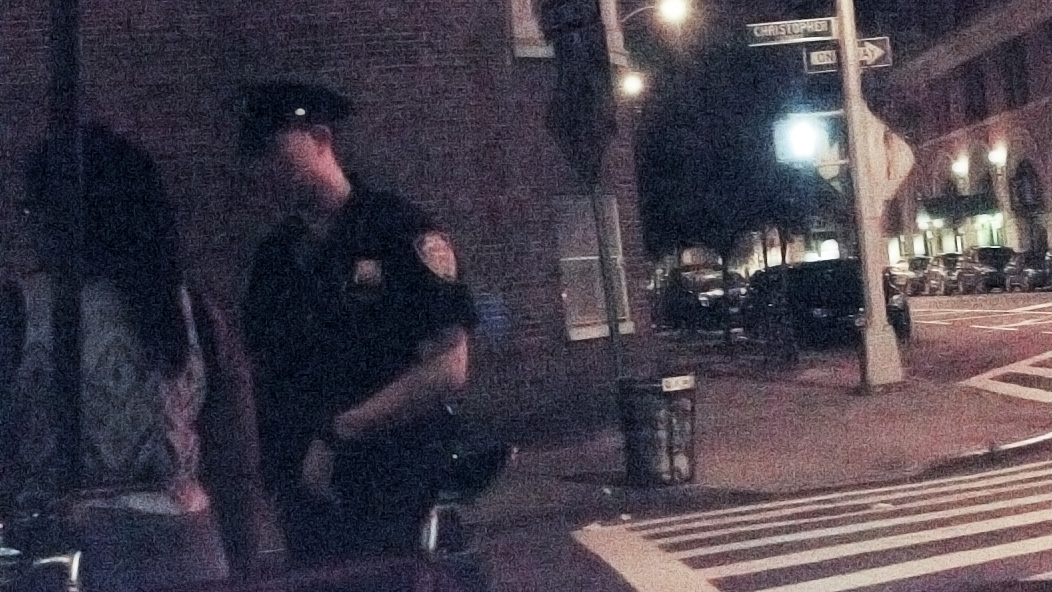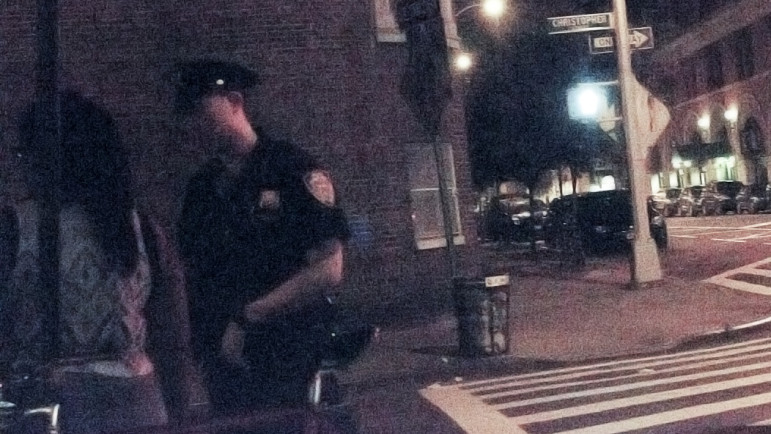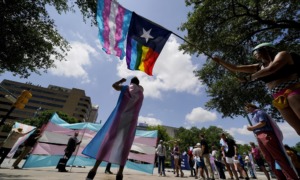The criminal justice system in New York City is ill equipped to deal with the needs of LGBTQ young people who engage in survival sex, according to a new report from the Urban Institute.
Youth cycle through the system, an experience that compounds the difficulties that may initially have led them to have survival sex, said Meredith Dank, lead author of the report and a senior research associate at the institute.
When young people jump a subway turnstile because they don’t have a few dollars in their pocket, they may face a fine that’s many times more. When they can’t pay the fine, they may end up with a bench warrant and an arrest record. When they look for a job, their record makes it harder.
“That’s a way of turning kids into criminals,” Dank said.
The report, based on in-depth interviews, captures the criminal justice experiences of 283 young people, ages 15 to 26, who identify as LGBTQ, young men who have sex with men or young women who have sex with women. Almost all the participants identified as people of color.
In New York, all 16- and 17-year-olds are considered adults.
More than 70 percent of those interviewed said they had been arrested at least once, often for misdemeanors. Two-thirds said they had been stopped, questioned and frisked at some point in their life.
A third of the participants also reported they felt unsafe while in custody, from arrest through pre-arraignment detention. Some reported violence or abuse from the police, according to the report.
Broader research
The report is one in a series that looks at the experiences of youth who engage in sex work and identify as LGBTQ, YMSM (young men who have sex with men) and YWSW (young women who have sex with women). An earlier report details why those groups of youth have survival sex and makes recommendations about how to meet their needs.
Judy Yu, director of the juvenile justice project at the Correctional Association of New York, said the research adds to a growing body of knowledge about the risks and challenges for LGBTQ youth in the criminal justice system.
“It brings into the discussion the fact that for LGBTQ youth of color, the reasons that they may be engaging in survival sex are the same funnels into the system,” she said.
The report, which features many excerpts from the interviews, paints a portrait of what young people experience and need, from their perspective, which is critical to understanding the problems they face, Yu said.
[Related: Justice System Must Not Worsen Harsh Realities of Life for LGBT Youth]
“It doesn’t back away from showing the harm that we as a society inflict. But I think it also illustrated in a beautiful way that these young people are wonderful resources. They have ideas, they are leaders,” she said.
The researchers also interviewed 68 criminal justice, child welfare and youth-serving professionals.
Stakeholders said law enforcement and court officials make a good-faith effort to treat youth equitably, though the system is not perfect. They also reported that barriers to youth needs include lack of training and services.
Dank said the young people who were interviewed felt singled out by police.
“What boggles their mind and is frustrating to them is how often they’re targeted because of their race, because of their gender presentation, because of their sexual orientation,” she said.
Some law enforcement officers felt the young people were more likely to commit crimes because of their gender or sexual identity.
“Some acknowledged that survival sex was a behavior related to a lack of financial and other resources, but many officers indicated a common belief that “nonnormative” sexual orientation or gender identity and involvement in survival sex was itself criminogenic — causing or likely to cause criminal behavior,” the report said.
Some of the youths’ perspectives on the child welfare system are included in the report because many mentioned in the interviews their experiences growing up in that system.
Recommendations
The researchers said steps such as more training for law enforcement would be helpful, but structural reform is necessary.
The report’s recommendations include:
- A shift in how the federal government awards grants to local jurisdictions, to ensure youth are not criminalized by policies that try to direct them to services by detaining them;
- Making it easier for youth engaged in survival sex to voluntarily access services such as food, housing, showers and health care;
- Increasing transparency, oversight and accountability in policies that deal with youth engaged in survival sex;
- Ending secure confinement or institutional placements for youth arrested on prostitution-related charges.
Dank said it is critical to follow up with youth after policies change to ensure their experiences also change.
“Does it change the mindset of young people? Do they now feel safe?” she said.
More related articles:
Runaway and Cast Off: One LGBT Teen’s Story
Finding Out: An Introduction to LGBT Studies
Time to Foster Safety, Well-Being, Permanency for LGBTQ Youth

































